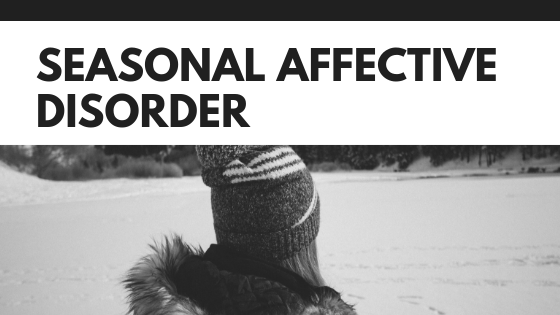
Seasonal Affective Disorder: Notice the Signs and How to Respond
I'm not a fan of winter. It's cold. It's dreary. The days are short. It's dark when I leave the house in the morning to go to work, and it's dark when I get home. I tend to feel kind of bummed out about life in general, and I don't really want to do anything. That is not how I typically feel about life. I just don't feel quite like myself in winter. I have a tendency to snap at my family and then feel guilty that I snapped...which might make me cry. I also have felt out of control of my emotions and couldn't figure out why I felt or acted this way.
I've never really liked winter, but about two years ago I figured out that I had all the symptoms of Seasonal Affective Disorder (SAD). We had a particularly hard winter that year. Lots of days out of school. Lots of time spent at home with my family with nowhere to go and the same old stuff to do. You may refer to it as Cabin Fever or the Winter Blues, and for you, that may be all it is; however, if you are feeling this way, and nothing you do to alleviate it seems to be helping, you may be experiencing Seasonal Affective Disorder too. SAD is a type of fairly common type of depression that is linked to a particular season, often fall and winter (though some people experience it in summer), which causes fatigue and feeling moody or down.
Although women are more likely to experience SAD, anyone can develop the disorder. It is most common among people who live far from the equator, people between ages 15 and 55, and people have a close relative who has experienced the disorder. Though causes are not completely clear, it is most likely caused by lack of sun exposure and/or a disrupted sleep-wake pattern due to seasonal changes in the length of the day and how this affects your brain chemistry.
If you have noticed that you feel droopy and drained during the same time each year and that your mood improves when the seasons change, you may be experiencing Seasonal Affective Disorder. Think back over the last several years, and if you notice that you have had mood difficulty during the same time period for at least two years, it may be worth investigating further into potential prevention and treatment. Keep in mind, everyone's brain is different, so you may not experience all of these symptoms, and the severity of symptoms may vary from year to year.
Symptoms May Include:
- Sad, anxious, or "empty" feelings
- Feelings of hopelessness and/or pessimism
- Feelings of guilt, worthlessness, or helplessness
- Irritability or restlessness
- Loss of interest or pleasure in activities you usually enjoy
- Fatigue and decreased energy
- Difficulty concentrating, remembering details, and making decisions
- Difficulty sleeping or OVERsleeping
- Changes in weight
- Thoughts of death or suicide
(NIH: National Institute of Mental Health via MedLinePlus.gov)
Treatment Options:
If you think you may be experiencing Seasonal Affective Disorder and it is interfering with your ability to cope with daily interaction, work, or family responsibilities, visit your doctor. They may refer you to a counselor, psychologist, or psychiatrist, or they may suggest using an anti-depressant medication, light therapy, or a combination.
If you've got the Winter Blues:
If your symptoms don't quite fit SAD, but you just feel bummed or fatigued, here are some ideas to perk you up:
- Exercise! I know it sounds like the last thing you want to do, but exercise releases endorphins that can really perk up your mood.
- Practice good nutrition. Eat healthy food, drink plenty of water, and be aware of how caffeine affects your mood and energy levels...it doesn't do the same things for everyone.
- Talk to a friend.
- Rest and relax.
- Practice mindfulness meditation. Staying in the present rather than thinking about things you would have done differently or worrying about the future can be a wonderful stress reliever and mood booster.
For More Information:
Medlineplus: https://medlineplus.gov/seasonalaffectivedisorder.html
Mayo Clinic: http://www.mayoclinic.org/diseases-conditions/seasonal-affective-disorder/basics/definition/con-20021047
Mindful.org: http://www.mindful.org/meditation/mindfulness-getting-started/
UAEX Mindfulness Resources: http://www.uaex.uada.edu/publications/pdf/FSFCS70.pdf
UAEX Nutrition Resources: http://uaex.uada.edu/life-skills-wellness/food-nutrition/eating-well/